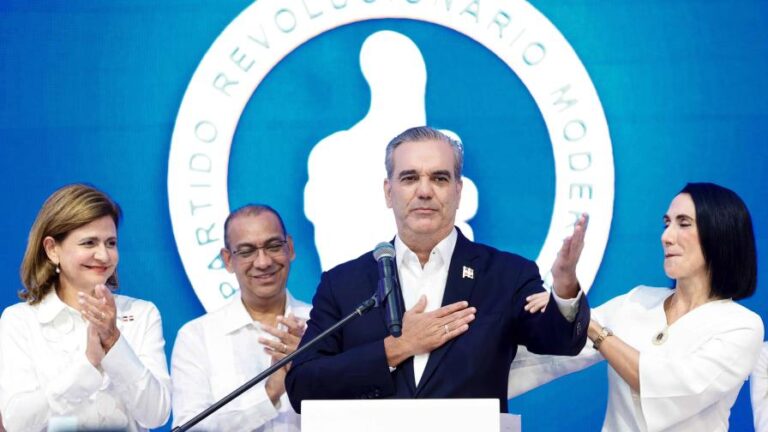La República Dominicana debe poner en marcha políticas tendentes para impulsar el desarrollo de energías renovables, incluyendo aumentar las oportunidades de acceso al financiamiento a través de mecanismos nacionales e internacionales, así como reponer los incentivos que reducen los altos costos de la tecnología en más de un 20%.
En vista de que el país no produce petróleo “resulta oneroso” fundamentar el sistema energético a partir de combustibles fósiles y por lo tanto “sin lugar a dudas, es atractivo desde el punto de vista económico hacer una transición a energías renovables”, recomiendó Llilda Solano, experta en legislación económica y derecho empresarial, y socia de la firma DMK Abogados/Central Law.
Expuso sus criterios en el recién publicado libro “Inversiones Extranjeras en el Sector Energético en Latinoamérica”, del cuyo capítulo dedicado a República Dominicana es la autora.
Solano señaló que el Plan Energético Nacional, la Estrategia Nacional de Desarrollo y su Plan de Desarrollo Compatible con el Clima establecen que para el 2025 el 25% de la energía producida debe ser de fuentes renovables, y la reducción de gases de efecto invernadero en un 25% al 2030, y para alcanzar estos objetivos es necesario hacer la transición a un sistema energético sostenible.
Destacó que a pesar de estos ambiciosos objetivos “la visión energética de largo plazo del país todavía parece apoyar un sistema ampliamente basado en combustibles fósiles”; y cita como ejemplo que en el Ministerio de Energía y Minas tiene varios viceministros, pero ninguno de ellos a cargo de energía renovable.
Solano sugiere que este Ministerio se ocupe de recolectar y centralizar toda la información disponible sobre el sector energía que está dispersa en las varias agencias que existen; además crear una oficina que se ocupe de agilizar los largos procedimientos, tipo la ventanilla única que funciona en el CEI-RD y eliminar la diversidad de agencias estatales que inciden en el sector.
Pacto Eléctrico
Además propone revisar la Ley de Hidrocarburos para incentivar la generación y consumo de energía sostenible, y cuestiona que recientemente se ha aprobado una legislación que ha debilitado o eliminado algunos incentivos para la energía renovable.
Señala que el Pacto Eléctrico que se negocia debería restaurar las exenciones fiscales revertidas en el 2012 con la reforma fiscal, puesto que los impuestos y los aranceles a las importaciones aplicables a la tecnología de eficiencia energética o de energía renovable pueden desincentivar las inversiones, al aumentar los costos de la tecnología en hasta un 20% o incluso más.
Considera vital que se implemente el fondo de energía renovable creado por la ley 112-00 y “canalizar los ahorros internos” para apoyar proyectos de energía renovable y de eficiencia energética.
Fuente: http://acento.com.do/
[:en]
The Dominican Republic should put policies to boost the development of renewable energies in place, including increasing the opportunities to access financing through national and international mechanisms as well as bring back the incentives that reduce the technology costs by more than 20%.
Given that the country does not produce oil “makes it expensive” to base an energy system on fossil fuels and so “without a doubt, moving over to renewable energies is very attractive from an economic point of view”, according to Llilda Solano, expert on economic legislation and business law and partner of the law firm DMK Lawyers/Central Law.
She voiced her opinions at the launching of the book “Foreign Investment in the Energy Sector in Latin America” where she is the author of the chapter dedicated to the Dominican Republic.
Solano said that the National Energy Plan, the National Development Strategy and its Climate Compatible Development Plan establish that 25% of the energy produced must be from renewable sources by 2025 and that greenhouse gases must be reduced by 25% by 2030 and in order to do so the transition to a sustainable energy system is necessary.
She stressed that despite these ambitious goals «the long-term energy vision of the country still seems to support a system largely based on fossil fuels» and, as an example, cites that the Ministry of Energy and Mines has several deputy ministers but none of them in charge of renewable energy.
Solano suggests that the aforementioned Ministry is responsible for collecting and centralizing all available information on the energy sector that is currently dispersed throughout the various existing agencies and creating an office to streamline the long procedures, such as the one-stop shop that works in the CEI-RD and so eliminate the diversity of state agencies that affect the sector.
Electricity Pact
She also proposes revising the Hydrocarbons Law to encourage the generation and consumption of sustainable energy and questions recently approved legislation that has weakened or abolished some renewable energy incentives.
She points out that since taxes and import tariffs on energy efficiency or renewable energy technology can discourage investment by increasing technology costs by up to 20% or even more, the Electricity Pact currently under negotiation should restore the tax exemptions reverted with the 2012 tax reform.
She considers it vital to activate the renewable energy fund created by Law 112-00 and “to channel internal savings” to support renewable energy and energy efficiency projects.
Source: http://acento.com.do/
[:]


